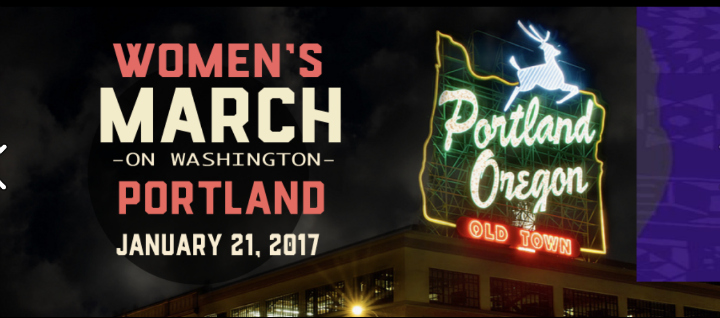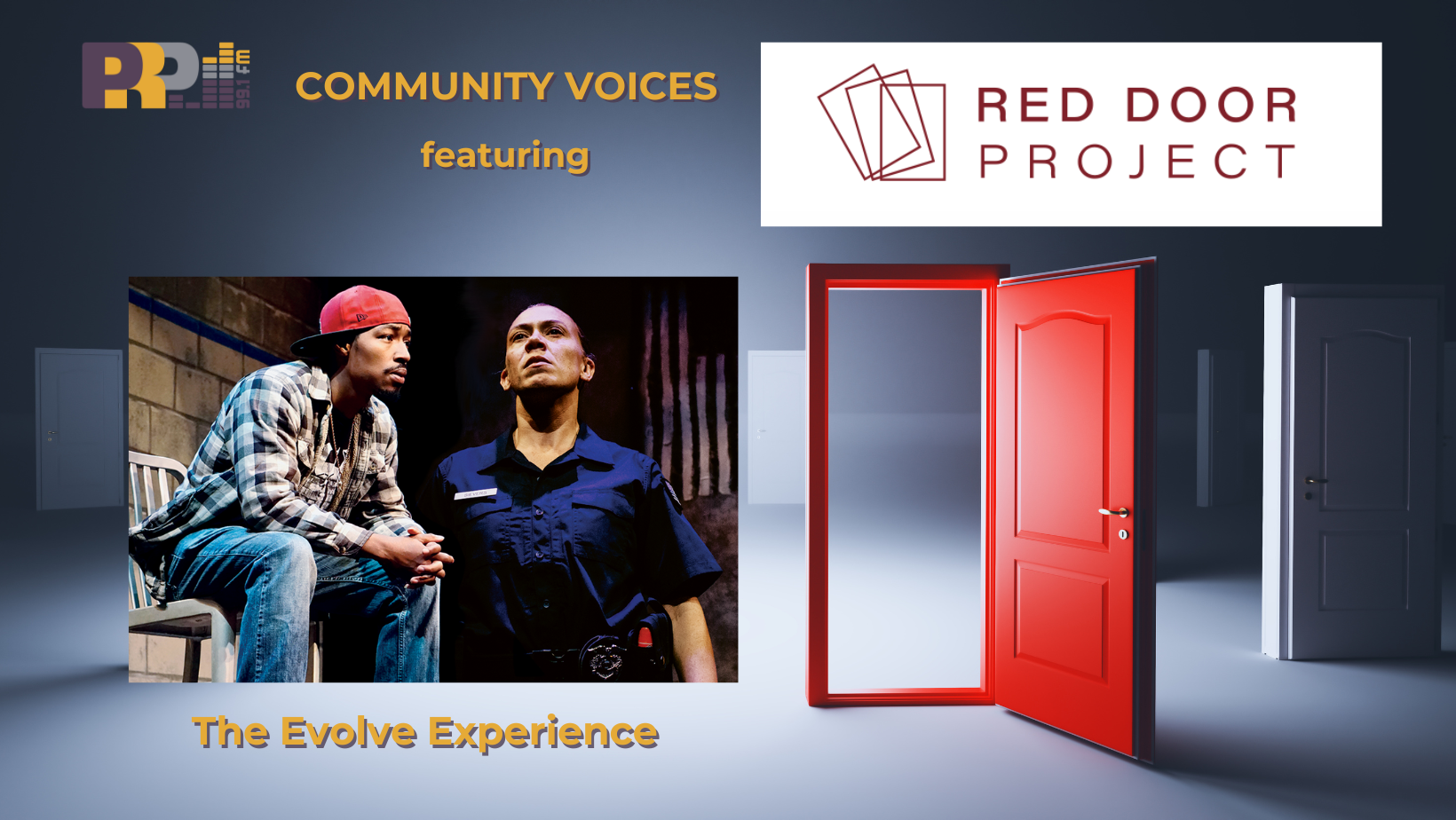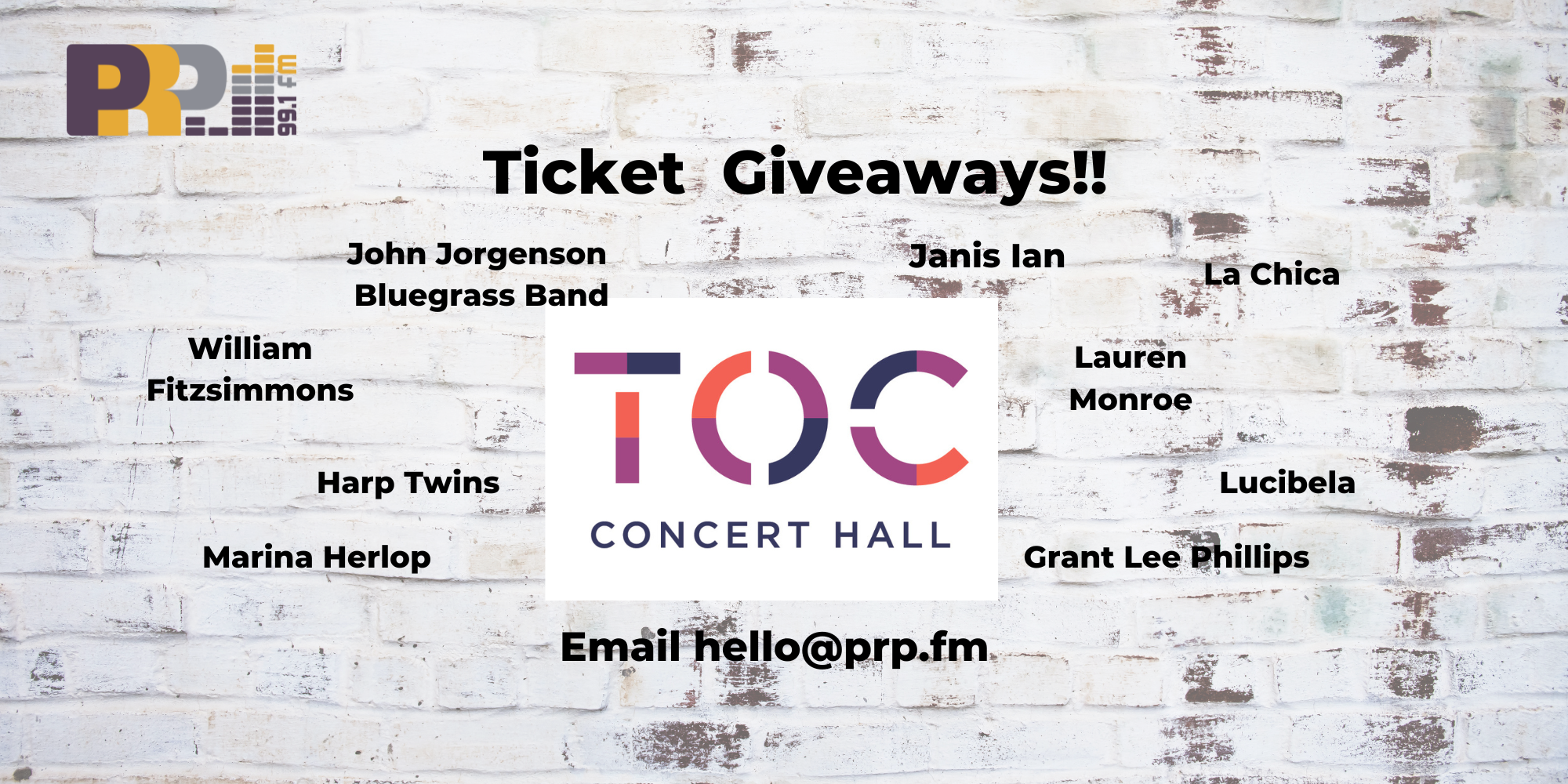The dream of equal rights for women has not yet been won. In fact, if it was a track event, many women might agree we are nowhere near the finish line.
For White American women who came of age with Gloria Steinem, Betty Friedan and Bella Abzug, and who may think standing up to sexism, demanding equal pay, calling out sexual harassment and fighting for paid maternity leave got the job done, that agenda is out of date. Expired. Not resonating with the diverse cross-section of independent women speaking up in 2017.
The race is not won, and it’s not a sprint. It is a relay, and the baton is being passed to younger women who can run the distance.
A teachable moment for Portland is at hand. Considered “one of the whitest cities in America” according to the Washington Post, with a population that is 76% white, in a state founded on principles of a “Racist Utopia,” it looks like women will clean up the mess.
The Women’s March On Washington, the flagship march of what is now a global, simultaneous “sister march” in nearly 400 US and international locations, will send an unprecedented message to incoming elected officials – and countries around the globe – that women will oppose further limits on their human rights, and push harder to make space for equal time and space for women of color, immigrant women, and for women of the LGBTQIA community.
Portland is projected to host one of the largest “sister marches” in the nation, with over 25,000 marchers expected to participate in the Saturday, January 21, “Womens March on Portland”
“These sister marches show a powerful and inclusive movement, which is just as crucial as the thousands who will travel to DC,” declared WMW founder and co-chair Bob Bland, who also welcomed global participation: “We’re excited that women across the nation and the world are organizing to stand together in solidarity. Our unity will send a strong and clear message that women and our allies will protect our rights, our health, our safety and our communities.”
In Oregon, however, March leaders have struggled to maintain unity in the face of conflicts between the original organizers and individuals (or groups) who felt excluded. The tension led to Portland’s branch of the NAACP withdrawing its endorsement of the event – reportedly after participants were discouraged from holding “Black Lives Matter” or anti-Trump signs deemed “too political.”
A Portland NAACP press release cited organizers’ “resistance to addressing the critical issues that many women especially Muslim, immigrants & refugees and Black women are facing with the incoming administration.”
Margaret Jacobsen, a writer and activist tapped by national WMW leaders to diversify leadership of the Portland sister march, was in studio Monday, January 16, for a special edition of Community Voices on Portland Radio Project.
The Jacobsen interview kicks off a new PRP.fm podcast series, Portland Women Listen, created to explore the uncomfortable, important, emerging discussions among women about what it really takes to honor, support and respect all women.
You are invited to join PRP.fm and explore a new, different Utopia where this race might actually be won.
- New Festival Showcases Multicultural Readings & Films - August 18, 2021
- Parisalexa Plays Portland! - August 9, 2021
- Pardon our Dust! - June 29, 2021









Well said Rebecca.
Thanks, Val!
Please be sure to let folks know that Portland feminist men are joining this march.
Definitely.
How do I find out where the march starts?
Sadly Margaret Jacobsen, I was not impressed with your explanation of how you came to take over the leadership of this March. You left out quite a bit didn’t you? To imply that the work in the 70’s, 80’s, and on, that was done by so many strong women of ALL COLORS and nationalities and in name of Feminism…somehow excluded you? Was very careless and without basis. Were you even born then? I WAS THERE. I marched and protested and did sit ins with women from all walks of life, nationalities and cultures. It was a frontier and an exciting time for all women. You claim that WOC are still being excluded and denied. This simply is a fabrication that you have continued to propel in order to make a name for yourself as a writer and a political activist. It is truly sad that you maligned the original organizers in the way that you did and literally distorted the truth in such a way that it has become for many of us an absolute slap in the face. You are making accusations and leaving out vital truths or twisting them to propel you story of hate and divineness. Us Older gals see what you are doing though. We were THERE…and great efforts went into fighting specifically for the marginalized and WOC, as well as the trans communities and the disabled. You act as if this is something new. You know why the NAACP PULLED OUT. IT WASNT JUST BECAUSE A BUNCH OF OLD WHITE FEMINISTS DIDNT WANT THE BLM CARRYING SIGNS. If that was the true reason, why aren’t they on board now? If it’s as you say,…that they couldn’t support the original organizers, then why aren’t they chomping at the bit to get on board now. Are you trying to start a race war? This is how it appears to many when you disparage one race of women in order to lift up another. You, yourself said you like to make people uncomfortable and you would like to see a march where there are all WOC and the marginalized to be the speakers and older white women should take a back seat. Why must you denigrate and insult one group of women..specifically white women…in order to lift women of color. How sad that you do not see that what you are doing is no worse than what you are claiming is being done to you. You have characterized white women as old, out of date, privileged, and implied they are some how, unknowingly racist, you blamed them for Trump being elected yet fail to recognize that many people of color voted for Trump. In addition, you want to live in the past and continue to play the race card in order to make a name for yourself in that particular arena when clearly, even though we are still a work in progress, we have come many many miles from where we were. But you would NOT know that because YOU WEREN’T THERE in those early years of feminism. The way you are talking has turned so many people off to much of what you are trying to say. You have disparaged and insulted so many of the women who came before you. If you had truly done your homework, you would know that there is no such thing as WHITE FEMINISM and you do a deep and grave injustice to all the women who marched before you…for the freedoms you and all women have today. If I could talk with you today I would tell you of all the amazing and strong women of color, women who were disenfranchised, disabled, poor, sex workers, trans, brave women who marched shoulder to shoulder with me and my girlfriend at rally’s and marches across this country. These are women YOU have relegated to the dust and referred to as old WHITE FEMINISTS. Where is your gratitude and your ownership and honoring of the work done by thousands and thousands of WOMEN OF EVERY COLOR AND CLASS that came before you. You have not invented anything new but you have served as a reminder of the work we still have left to do. Because, not only are we as women, still fighting the good old boys network, according to you, old white feminists are now being blamed for keeping the marginalized people oppressed!? Why are you trying to divide us further? Clearly, you do not see white women as oppressed. I say, you aren’t seeing clearly. You do not have the right to throw white women under the bus to further your own agenda. I will be marching tomorrow but not for your ideals or the rhetoric you espouse. It is limiting, insulting, and disrespectful. Personally, I am am utterly disappointed in your tactics and the way you have disparaged so many. There will be thousands of women turning out tomorrow but make no mistake, they will not ALL be coming because they agree with your line of thinking. Some will, but, many will be marching to show you what a REAL UNIFIED WOMEN’S MARCH looks like. Do not make the mistake of puffing up your self image and taking ownership for all that will be accomplished tomorrow…for tomorrow has been generations in the making.